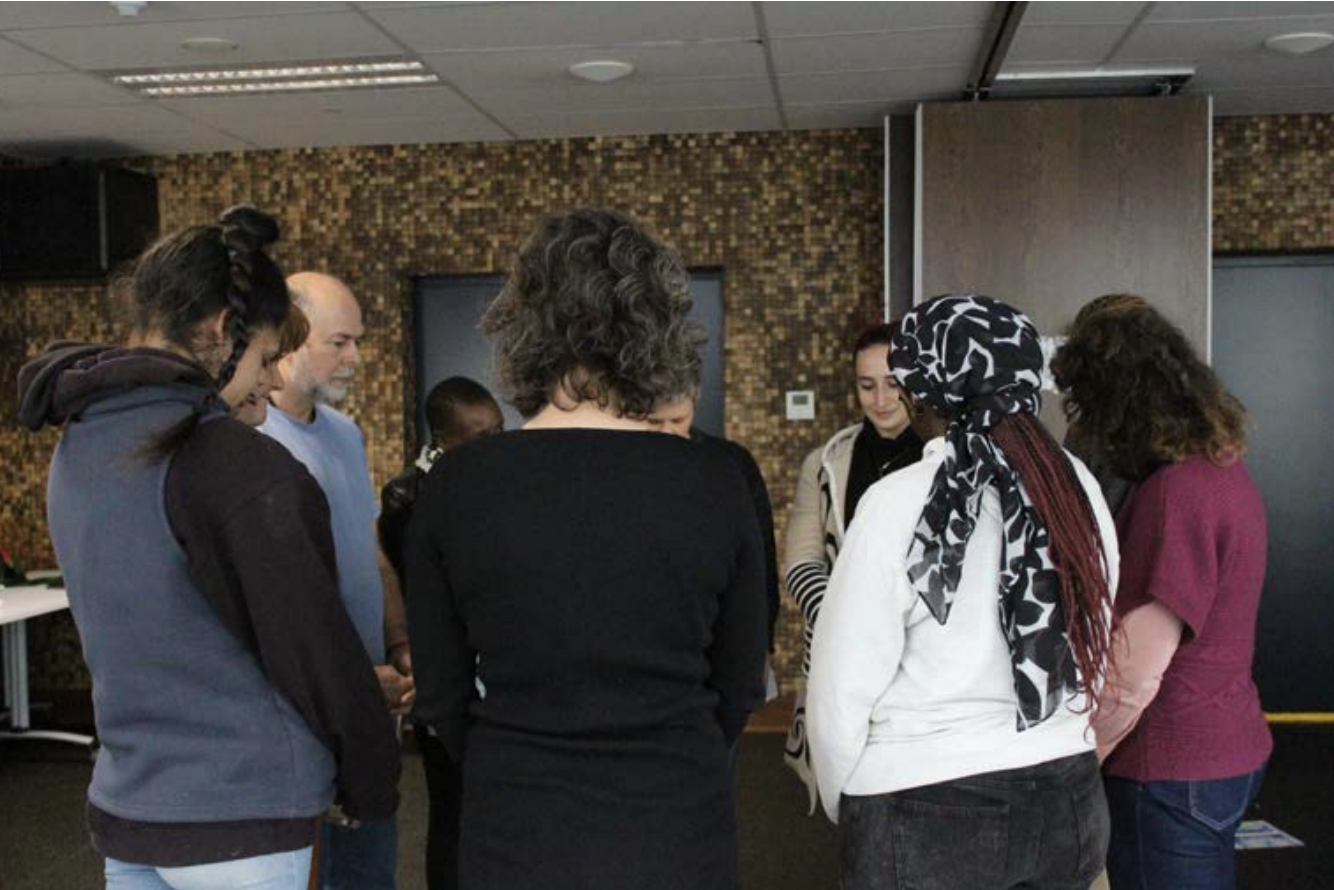By Keren Banza
I recently watched Roots, a performance piece about motherhood that blends photography and how movement can embody storytelling. I was drawn to exploring how we craft narratives in our art. Experiencing the Roots workshop shifted my perspective on storytelling.
Leila Anderson and Wanjiku Mwawuganga facilitated the workshop. They guided us through a creative process using multiple forms of expression. Each step is designed to steer us down a new path of storytelling.
During the workshop process, we did two free writing sessions about the oldest and most recent photos on our phones. The beauty of free writing is that it creates a safe space to find meaning, even in absurdity. I had to link a decade-old photo of my older sister and me with a photo I had taken of an onion.
My first piece pondered love and sisterhood, exploring my fears of our bond dwindling. The other was the story behind the sprouting onion I keep on my table. It was a gift from my writing lecturer, accompanied by a poem on how love is like an onion. It has layers, can make you cry and, if cultivated, will flourish. The hope is that the onion reflects our relationship to writing.
But writing can be a difficult craft. I often find myself staring at a blank page for hours. I know what I want to say, but my mind is a prison, and the words cannot escape. The next workshop activity, a lesson on how to plan a prison break, would help me free my mind and set my words free by drawing. We learned to capture our free writing pieces into one story through visual arts and used two colours that represent emotions within our pieces. The lesson learned during this activity is that your story is somewhere in the jungle of squiggles and poorly drawn shapes. If one form of expression fails, dive into another.
Our minds may store memories, but we experience life through our bodies and so after we drew, we moved. It was awkward and uncomfortable at first but somewhere in between, I found an unspoken layer of my story that only my body knew how to tell.
In the words of Leila Anderson, storytelling is “how we take personal experiences and place them in conversation with the world”. The world is coloured with words, pictures and movements. Don’t be afraid to explore how they can influence the stories you want to tell.


